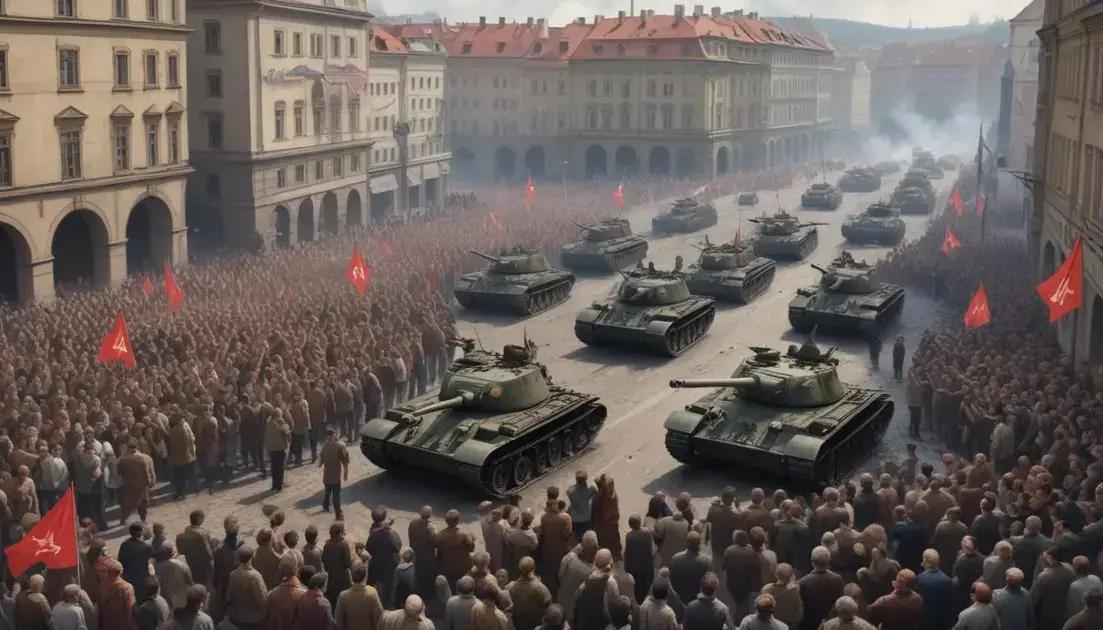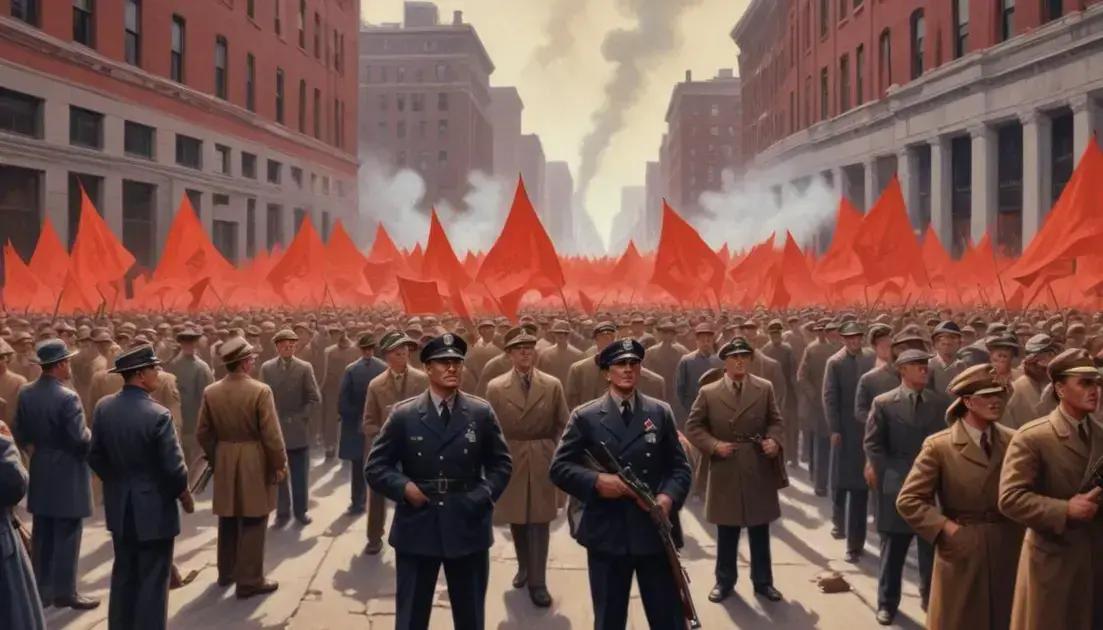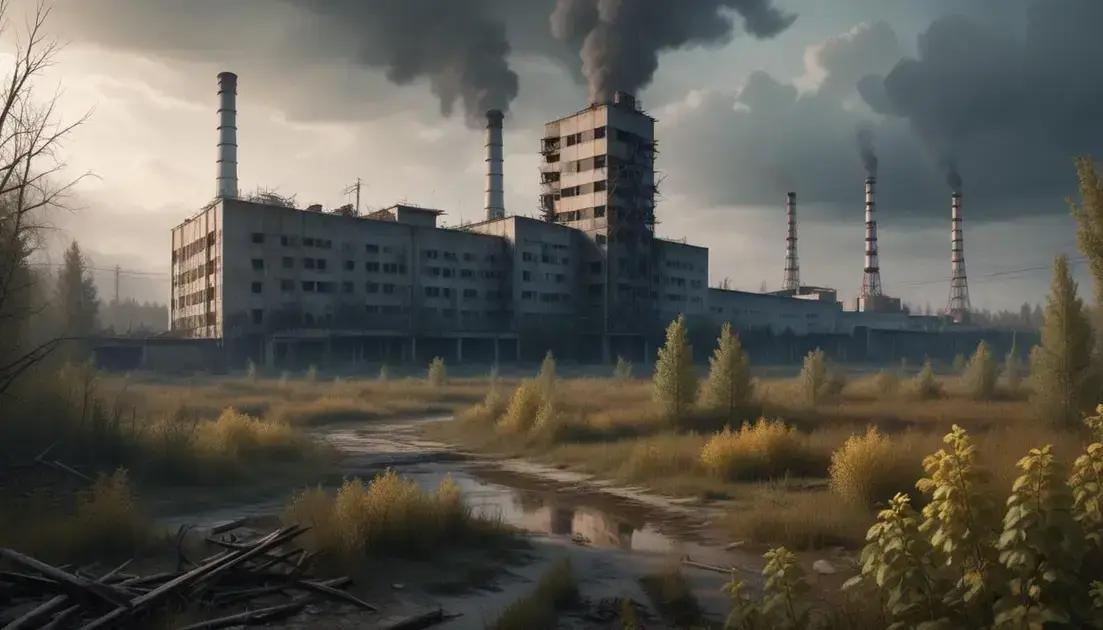
Prague Spring: Freedom and Repression in Czechoslovakia
The Prague Spring was a significant movement in 1968 that sought political freedom and reform in Czechoslovakia, led by Alexander Dubček. While it inspired hope for change, the Soviet Union’s invasion quickly crushed these efforts. Despite this setback, the ideals of the Prague Spring lived on, influencing future movements for democracy and civil rights. Today, it serves as a powerful symbol of the fight for freedom, reminding us of the ongoing importance of human rights and social justice globally.
Prague Spring marked a pivotal moment in Czechoslovakia’s history, revealing the tension between freedom and repression. How did this movement influence modern thoughts on liberty?
Historical Context
The historical context is key to understanding any topic. It looks at events and changes over time that shape our current situation. By studying history, we gain insights into why things are the way they are today.
What is Historical Context?
Historical context includes the social, political, and economic conditions of a time. It helps us see how past events influence present-day actions and decisions. For example, major wars or movements can reshape nations and cultures.
Why is it Important?
Understanding historical context is important for many reasons. It helps us learn from past mistakes. It also shows us how cultures evolve. Knowing the background of an issue gives us a fuller picture and can inform better decisions.
For students and researchers, diving into historical context can lead to deeper analyses. It provides the framework needed to grasp complex issues like conflicts, government policies, and social changes.
Examples in History
Let’s look at the American Civil Rights Movement. By learning about the laws and societal norms before and during this time, we can understand its significance. The struggle for equality was influenced by earlier events like the abolition of slavery and World War II.
Moreover, examining historical trends helps us see patterns that repeat over time. We learn that social change often requires effort and resilience from many people. These lessons remind us that progress takes time and collective action.
Major Events
Major events can shape the course of history dramatically. These events often change societies, economies, and governments. Understanding them helps us see how the world has developed over time.
Key Historical Events
Some events stand out as turning points. The American Revolution, for example, led to the formation of a new nation. It emphasized freedom and democracy, impacting other countries worldwide.
Another significant event was World War II. This conflict involved many nations and resulted in substantial changes in political power. Countries rebuilt afterwards, and new alliances formed.
Why They Matter
Major events give us context for today’s issues. They help us understand current conflicts and struggles for rights. When we examine important moments in history, we learn valuable lessons for the future.
Furthermore, these events often inspire movements. For instance, the Civil Rights Movement in the U.S. arose from the struggles of previous generations. Understanding its roots shows why equality remains vital today.
Impact on Culture and Society
These events also influence culture. Music, art, and literature can reflect the feelings and ideas of the time. For example, wartime literature often expresses hope or despair based on people’s experiences.
The study of major events is essential for grasping different perspectives. Each event adds to the narrative of human experience. By learning from these stories, we pave the way for future progress.
International Reaction
International reaction plays a crucial role during global events. Countries often respond to significant happenings in unique ways. Their actions can influence world politics and relationships.
Understanding Global Responses
When major events occur, leaders from different nations make statements and take actions. These responses can express support or condemnation. For example, during natural disasters, many nations send aid to help those affected.
Diplomatic Relations
International reactions can strengthen or weaken diplomatic ties. A positive response can lead to closer partnerships. On the other hand, harsh reactions may result in sanctions or isolation. This shows how important it is to handle situations with care.
Media Influence
The media also plays a big part in how countries react. News reports shape public opinion, impacting how governments respond. For instance, widespread media coverage can lead to increased humanitarian efforts during crises.
Case Studies
Looking at history helps us understand international reactions better. After the 9/11 attacks, many countries rallied to support the U.S. in its fight against terrorism. This event shifted global politics and security measures worldwide.
Similarly, during the COVID-19 pandemic, countries reacted in various ways. Some imposed strict travel bans while others focused on vaccine distribution. These choices affected global cooperation in health and safety.
Long-term Impacts
Lastly, international reactions can create long-lasting effects. Changes in policy or alliances may happen as a result. Countries learn from each other, building strategies to face future challenges. Understanding these reactions is key to grasping global dynamics.
Legacy of the Prague Spring
The legacy of the Prague Spring is significant in understanding modern Czech history. This movement, which began in 1968, aimed for political reforms and greater freedoms within Czechoslovakia.
What Happened During the Prague Spring?
The Prague Spring was led by Alexander Dubček. He sought to create a more open society. Reforms included freedom of speech, press, and greater autonomy for Czechoslovakia. This period excited many people, inspiring hope for change.
International Reaction
However, the reaction from the Soviet Union was swift and harsh. In August 1968, Warsaw Pact troops invaded Czechoslovakia. This invasion ended the reforms and forced reforms to be rolled back. The international community watched in shock and dismay.
Impact on Czechoslovakia
Despite the invasion, the ideals of the Prague Spring endured. Many Czechoslovakians continued to dream of a open society, leading to later movements for democracy. The desire for reform laid the groundwork for future changes.
Modern Influence
Today, the Prague Spring is seen as a symbol of hope and resistance. It reminds people of the importance of freedom and human rights. The events of 1968 resonate with many who strive for change in their societies.
Understanding this legacy helps us see the struggle for democracy in Central and Eastern Europe. It also highlights the ongoing fight for civil liberties worldwide. The Prague Spring’s spirit continues to inspire those seeking justice and freedom.
Conclusion
In conclusion, the legacy of the Prague Spring is important for understanding the fight for freedom and reform in Czechoslovakia. Despite the harsh ending, the desire for change lasted for years. The spirit of hope from 1968 inspires modern movements for democracy around the world.
Today, the Prague Spring reminds us how valuable human rights and civil liberties are. It teaches us that change can come from the people’s dreams and struggles. By learning from this history, we continue to push for better futures where freedom and justice thrive.


